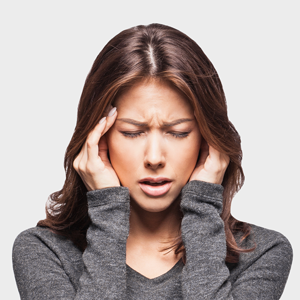 We see cases here in our Kanata Chiropractic office where patients who have been making steady progress through their care take a sudden step backward. The question, of course, is why?
We see cases here in our Kanata Chiropractic office where patients who have been making steady progress through their care take a sudden step backward. The question, of course, is why?
The cumulative effect of missed appointments can be one factor—not following your recommended course of treatment, whether in the clinic or at home with any exercises we have assigned, is obviously counter-productive.
Another factor could be a recent trauma that has had a negative impact on the spine, from a hard hit during contact sports to a fender-bender on the highway or an epic wipeout while cycling, roller-blading or water-skiing.
But we see this situation arise with patients who are diligent about their treatment and have had no recent trauma. They see a resurgence in symptoms such as back pain, neck pain, and headaches. They suffer from muscle tension that is causing issues with mobility and range of motion.
We of course don’t probe our patients about their personal lives. But a discrete question or two often reveals that the culprit responsible for this flare up in symptoms is stress.
That’s right – stress
From issues with the kids, to deadline pressures at work, or the angst which young people face around exam time, stress has a huge impact on our physical, emotional, and cognitive well-being.
Stress of any kind triggers our “fight or flight” response, which obviously served our ancient ancestors well when they faced a physical threat or the prospect of being some predator’s next meal.
When we are under stress, our body is flooded with hormones adrenaline and cortisol. These are meant to get our blood pumping and heart racing so we can run, fight and keep pain or injury from slowing us down, at least for a little while. Your muscles tense up to resist injury and be more responsive.
Our bodies are not designed to be subject to high amounts of these hormones long-term. Days or weeks of elevated stress hormones will keep those muscles tense to the point where they will knot up. This leads to aches and pains in your head, neck, shoulders, back, and throughout your body.
What you can do about it
Many people will reach for pain medications for relief, but this is one of those examples of treating a symptom rather than a cause that we have warned about before.
Instead of becoming dependant on medications intended only for short-term need that carry an increasingly severe risk of side effects with repeated use, consider instead:
- Exercise and fresh air
- Meditation and relaxation exercises
- Avoiding, if possible, the source of your stress, or focus on taking control of related issues, such as better managing your time
- Avoid caffeine, nicotine, and alcohol
- Get more sleep
- Talk to someone – don’t keep things bottled up
Stress affects more than just your muscles
The muscle tension-related issues that come of stress are of prime importance to us given our focus. But the impact of stress is far-reaching:
- Cognitive issues, with memory and your ability to think clearly and solve problems
- Elevated blood pressure and risk of heart attack
- Gastro-intestinal issues
- Weakened immune system that leaves you prone to catch a bug more often
Check out this article from healthline.com that features an excellent illustration of all the ways in which stress can negatively impact your body, from your head to your toes.
